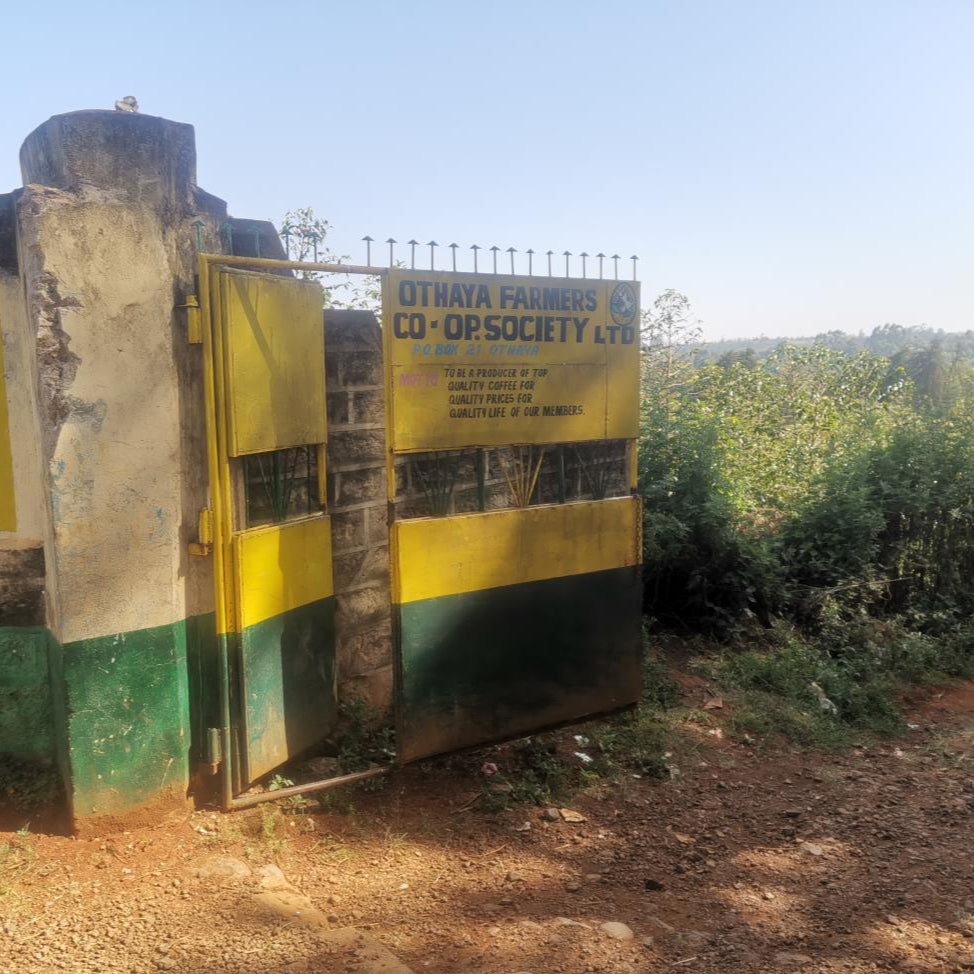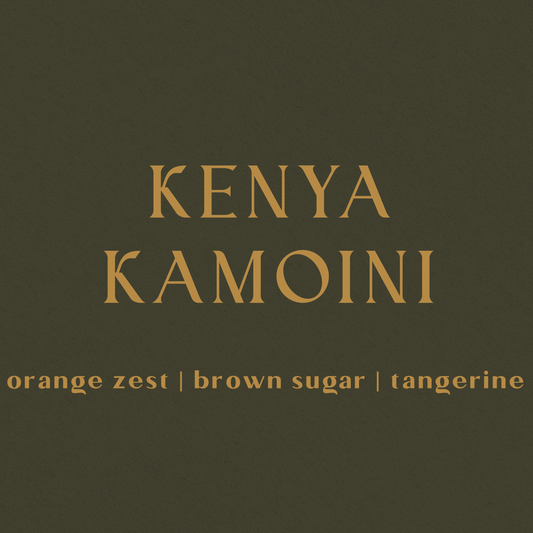
Kamoini Factory
Coffee Production at Kamoini Factory
1. Historical Background
Kamoini Factory is one of the small wet-mill facilities operating under the Othaya Farmers’ Cooperative Society (FCS), a coalition formed in the 1950s with an initial membership of 250 farmers, now expanded to thousands. Located near Othaya town in Nyeri County, the factory serves as a village-level processing point where local smallholders deliver cherries for communal processing. Established in approximately the late 20th century, Kamoini remains embedded within a cooperative framework that emphasizes quality, traceability, and community support.
2. Growth and Regional Development
Situated at an altitude of around 1,825 meters above sea level, Kamoini Factory sits alongside the Ichamama River, bordered by the fertile lands fed by the upper Karima forest. Its location provides advantageous microclimate conditions—high elevation, cool temperatures, and humidity—that enable slow development of dense coffee beans with vibrant flavors.
The farms supplying the mill are typically smallholder plots, averaging around half an acre each, where shade-grown coffee often coexists with banana and macadamia trees. The Othaya FCS supports its farmers through access to nurseries, training in agronomy, and shared infrastructure, reinforcing both productivity and sustainability across the region.
3. Present-Day Production and Processing Practices
At Kamoini Factory, coffee cherries are meticulously processed using traditional washed (wet) methods:
Farmers deliver hand-sorted cherries, pre-graded for ripeness.
After pulping, beans undergo fermentation, followed by multiple rounds of washing to ensure purity in the cup.
The parchment-stage coffee is dried slowly on raised African beds, where it's regularly turned and sorted to eliminate defects.
Many lots undergo a triple-wash protocol (a pre-fermentation float, main wash, and post-fermentation soak) to heighten clarity and quality.
Various cultivars—including SL-28, SL-34, Ruiru 11, Batian—are processed, with final green outputs graded as AA or AB, emphasizing bean size and density.
4. Market Dynamics and Quality Profile
Coffees from Kamoini Factory are prized in specialty markets for their consistently bright, complex, and balanced profiles. Common flavor descriptors include:
Bright citrus (e.g., grapefruit, pink grapefruit)
Black-currant and marmalade
Delicate sweetness reminiscent of raw sugar, honey, or caramel
Tea-like or black tea undernotes (such as lemon balm or raisin)
Aromatic spiced hints (clove, woodsy incense, apricot)
Top-tier lots, such as those labeled AA and triple-washed, frequently garner attention in auctions and premium roasts, making Kamoini one of Othaya's standout origins.
5. Outlook
Kamoini Factory exemplifies what makes Kenyan coffee remarkable—high-altitude terroir, rigorous cooperative processing, and meticulous attention to detail. With increasing demand for traceable, quality-assured coffee, Kamoini is well-positioned to enhance its role in specialty markets. Continued investment in equipment, processing refinement, and farmer support will ensure Kamoini remains a beacon of excellence in Kenya’s coffee landscape.
Shop Coffees from Kamoini Factory
-
 Sold out
Sold outKenya Kamoini
Regular price From $24.00 USDRegular priceUnit price / per



